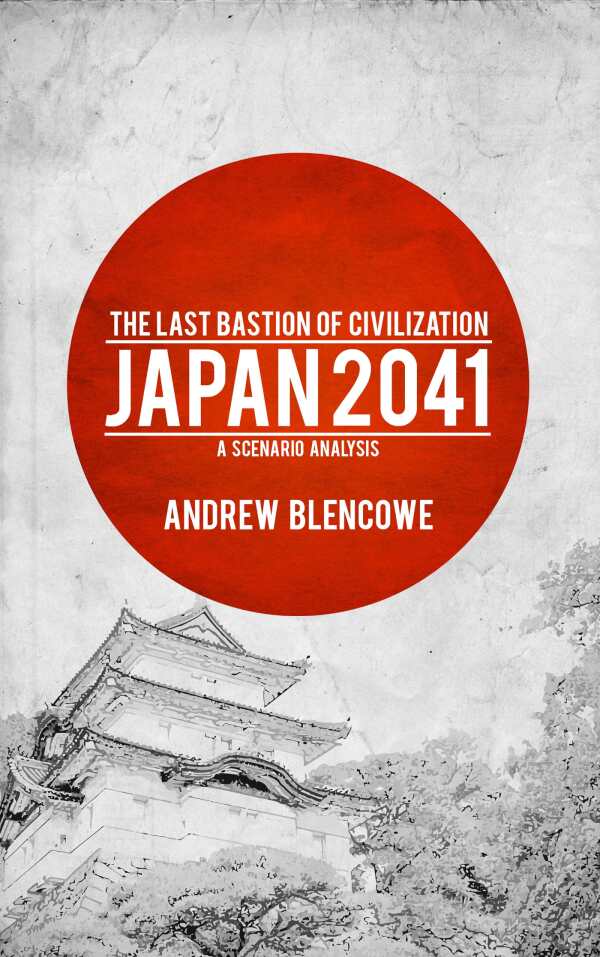The Last Bastion of Civilization
Japan 2041, a Scenario Analysis
A novel set in the near future explores what the world might look like if Japan were to achieve dominance.
The predictive novel The Last Bastion of Civilization: Japan 2041 presents a possible future in which Japan has achieved the dominance that other countries strive for. Biting social commentary and a strong, consistent viewpoint drive the pages of Andrew Blencowe’s newest book.
The Last Bastion of Civilization is written from the year 2041. Japan is a superpower even as the United States and Europe, with the exception of Germany, have fatally declined. The book is framed as a series of retrospective essays focusing on the previous half-century. Together, the essays describe the circumstances under which Japan has become the mightiest nation in the world.
Though it nominally focuses on Japan, the book directs attention at other nations too, apparently for the sole purpose of criticizing their social structures and blasting ethnic, religious, and sexual minorities, including women and black people. Such prejudices severely limit the book’s potential audience, detract from its cohesion, and confuse its purpose. Japanese culture and values come to seem something of a false front.
In addition to having controversial content, the book is also poorly planned. For example, its bibliography is little more than a list of URLs, almost all of which come from news sources rather than databased research articles. These URLs are subject to change and will soon be difficult to find on the Internet.
Like many books that attempt to construct a story from multiple points of view, this one suffers from a plateau of style and opinion. Every retrospective essay features the same voice and the same ideology, undermining the premise that the book is a collection of contributions from experts of many backgrounds. Variety would go far toward enhancing the reading experience.
The single voice that pervades the book is often off-putting. The book sets up and destroys straw man after straw man, from black people to feminists to Latinos. Alternative perspectives are absent. If Japan were a character, it would develop little throughout the course of the book.
Oddly, there is little context given to the idea that Japan is the best country in the world. The concurrent social circumstances of 2041 Japan are never mentioned outside of commentary on motherhood and family, and the potential challenges of the future post-2041 aren’t handled at all.
Japan 2041 contains a strong perspective, and may appeal to those who agree with the author’s forceful viewpoints and the potential for the future he envisions.
Reviewed by
Anna Call
Disclosure: This article is not an endorsement, but a review. The publisher of this book provided free copies of the book and paid a small fee to have their book reviewed by a professional reviewer. Foreword Reviews and Clarion Reviews make no guarantee that the publisher will receive a positive review. Foreword Magazine, Inc. is disclosing this in accordance with the Federal Trade Commission’s 16 CFR, Part 255.

